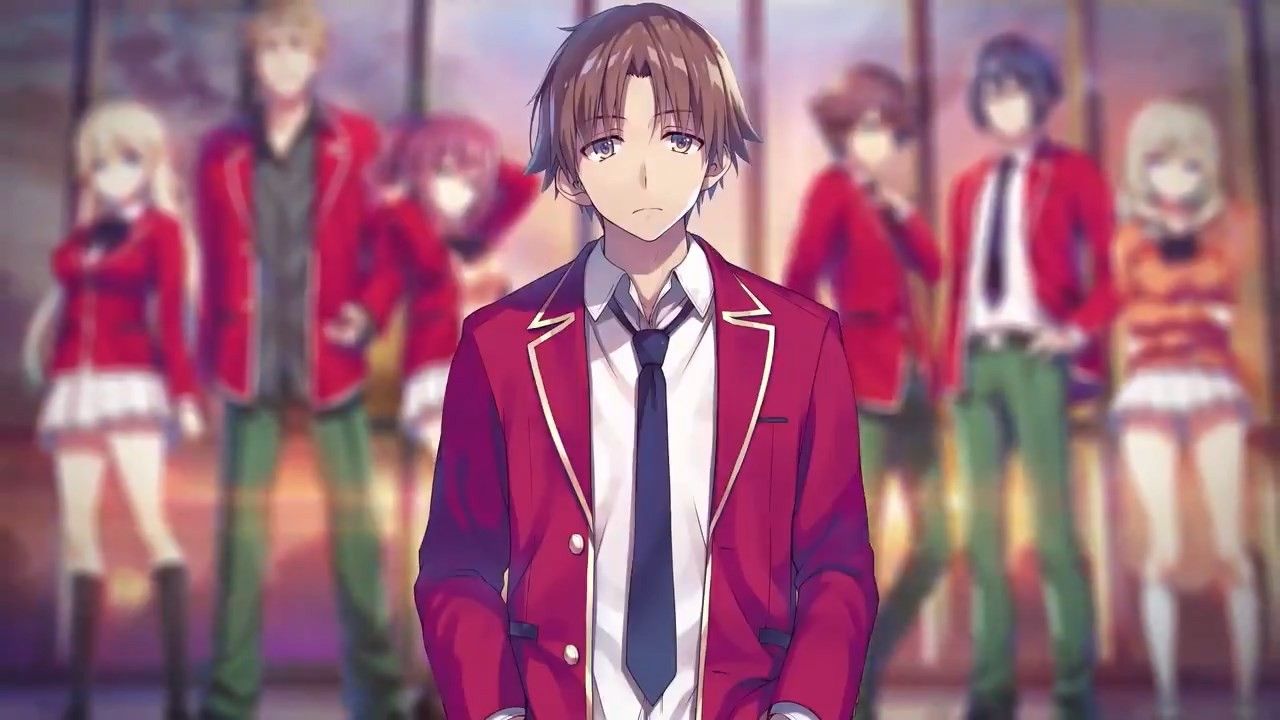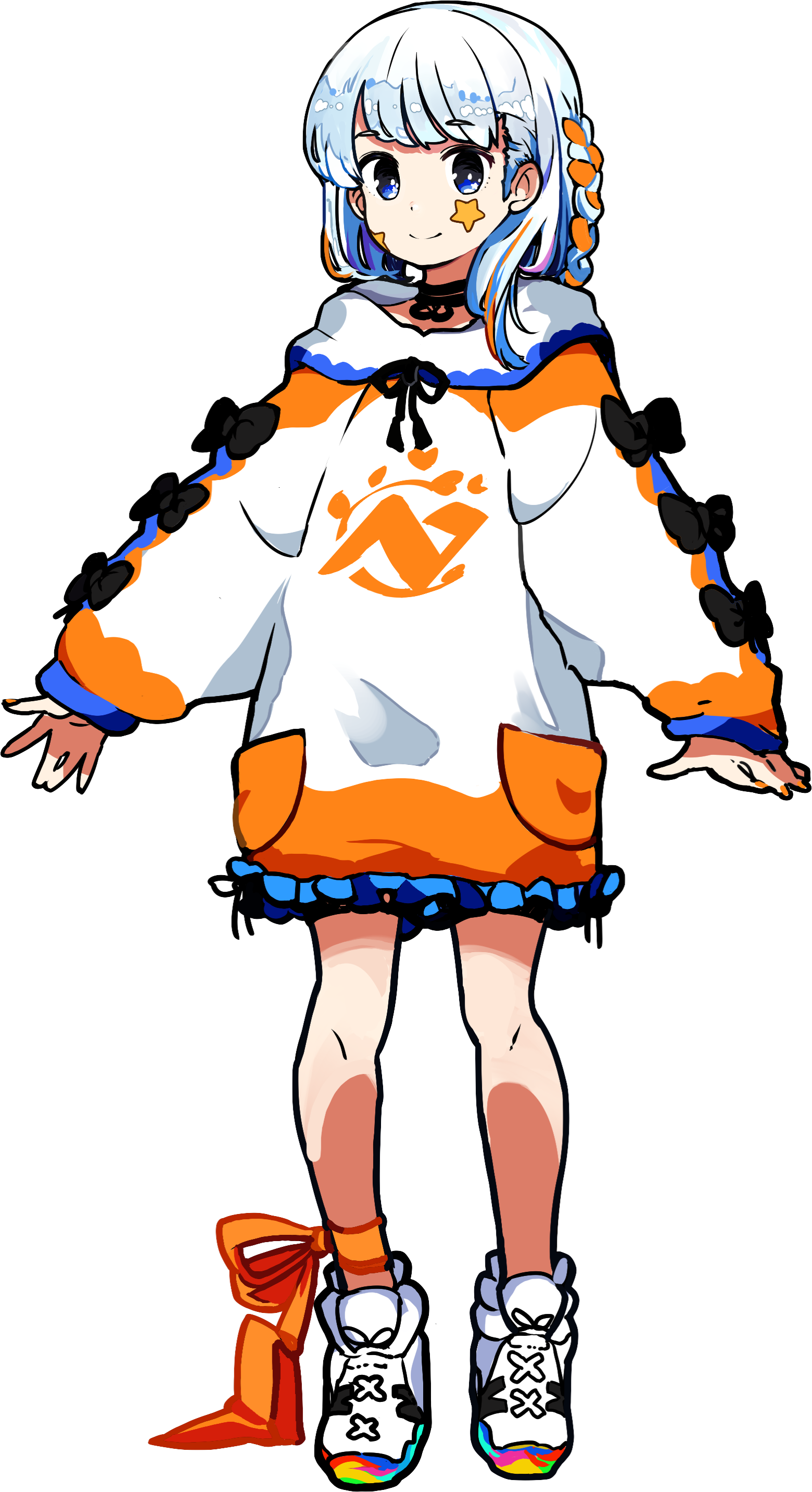What is the meaning of the title of “Classroom of the Elite”? And why is there a quote from a great man in the anime title?
- Category : Anime
- Tags: 2022 Anime, anime, classroom of the elite, manga

Classroom of the Elite” (“Classroom of the Elite”) aired its first season in July 2017. Finally, the long-awaited second season will begin airing in July 2022, and the third season is scheduled to air in 2023! While the first season was highly acclaimed overseas, it has also attracted a great deal of attention with many pros and cons. Classroom of the Elite has a very unique title name as well as the content of the work. For some reason, the title of each episode is based on a quote from a great person from the past.
So, in this article, we will discuss the meaning behind the title of “Classroom of the Elite” and why the title of “Classroom of the Elite” is a quote from a great man. I’ll explain why! Please note that this article contains spoilers for the first season.
|What does [Classroom of the Elite] title mean?
What is the meritocracy about the title “Classroom of the Elite” here? Why such a title? I’ll explain that!
School system affects title
First, “Classroom of the Elite” is set in one of the most prestigious schools in the country, the High School for Advanced Training. This high school is a boarding school and owns a large tract of land that has become a sort of town. However, until graduation, students are not allowed to leave the grounds or communicate with the outside world except for school events. The story unfolds in such a high school, which is naturally not a normal high school. Classes are divided into A to D, with the highest class, A, getting almost 100% of the jobs and places of higher education they want! However, there is no guarantee for those in B class and below. However, there is no guarantee for those in classes B and below. Furthermore, students who are in the lowest class will be expelled from the school. If that is the case, everyone wants to be in A class, right? How are the classes divided? Class placement is based on the student’s ability.
However, it is not the case that a student with excellent grades can get into the “A” class. It is literally a question of “ability. It can be said that this ability is a system that leads to the future. It is not just about test scores, but also about class attitude, tardiness and absences, and whether or not students are able to perform what is called “basic behavior. These factors are all evaluated and the system is based on the “supremacy of merit. Naturally, students who behave badly or cause conflicts with others will not be evaluated.
|Why are there quotes from great people in anime titles?
In “Classroom of the Elite,” quotes from great men and philosophers are quoted in the title and subtitle of each episode. Naturally, the quotes are not quoted without meaning, but are beautifully linked to each episode.
Why quotes from great people?
The main reason why we are using great people is probably because this “Classroom of the Elite” work has a philosophical theme. What is true equality, for example, and what is real competence? It is used to give meaning to such questions, and it makes one wonder if the story was not created to express a quote. It makes us think that the story was not created to express the quotes. Let’s take a look at 12 quotes from the greats, one for each story!
|Summary of quotes and lines from philosophers
Here are some quotes and lines from philosophers that were actually used in “Welcome to the Classroom of the Elite”. There are quite a few, so let’s list the titles first.
Episode 1:”What is evil?-Whatever springs from weakness. “
Episode 2:”It takes excellence to hide talent.“
Episode 3:”Man is the only animal that trades. No dog trades bones.”
Episode 4:”We should not be offended when others conceal the truth from us, because we conceal the truth from ourselves. We should not be offended when others conceal the truth, because we conceal the truth from ourselves.”
Episode 5:Hell, it’s strangers.”
Episode 6:”There are two kinds of lies: factual lies about the past and lies of right about the future.”
Episode 7:”There is nothing more dangerous than an ignorant friend. A wise enemy is much better.”
Episode 8:”Abandon all hope, ye that enter here.”
Episode 9:”Man is condemned to freedom.”
Episode 10:”The most dangerous of traitors is that which every man hides within himself.”
Episode 11:”But in general, what people call fate is mostly just their own folly.”
Episode 12:”A genius is one who lives only one level above madness.”
Now, have you been able to figure out who these quotes belong to? I’ll go on to explain the names of the greats and their meanings, in order!
Episode 1 “What is evil?-Whatever springs from weakness.” F. W. Nietzsche
The first episode is a Nietzsche quote. In the first episode, the high school system provides all students with 100,000 yen worth of private points. Furthermore, private conversation, napping, and even skipping class are tolerated, as if it were the springtime of their lives. Many of these students lead self-indulgent lives. Of course, there is no such a convenient story, and although they were not informed that they would be evaluated on a class-by-class basis, their evaluation by the school was naturally lowered significantly. Where is the weakness of human beings who fall into self-degradation due to temptation, or where is the desire to apply to this high school to work hard for a career after graduation…? Weakness of will that does not allow them to carry through. Would you call them evil? It might be interesting to look for various evils.
Episode 2 “It takes excellence to hide talent.” La Rochefoucauld
The second episode’s quote is La Rochefoucauld. This school system was revealed in the first episode. Students who commit self-indulgence are suddenly forced into a life of extreme poverty. Furthermore, they are told that if they get a red mark in an exam, they will be expelled from the school immediately. Something must be done. The protagonist, Ayanokoji Kiyotaka, is a man with seemingly mediocre grades. However, the words that describe the main character are the famous words of the title of this book.” As a protagonist who “hides his abilities,” he demonstrates his talent without regret, so this is a must-see. Incidentally, La Rochefoucauld was a man who couldn’t hide his talent and was able to distribute his talent to those around him, so perhaps there is a possibility of irony.
Episode 3“Man is the only animal that trades. No dog trades bones.”Adam Smith
The quote for episode 3 is by Adam Smith. In episode 3, Ayanokoji gets his seniors to sell him past papers. He also asks his teacher to sell Ken Sudo’s score, which he got a red mark. At first glance, the title of episode 3 seems to suggest that “humans can trade anything. However, it seems to be essentially referring to something else. In Adam Smith’s theory of national wealth, “Barter leads to the division of labor. Ken Sudo may be a bit of a luddite when it comes to academics, but he is physically gifted and will make the most of it. However, he is physically strong, so there may be a division of labor to make the most of his physical abilities. This was a development that made us think so.
Episode 4:”We should not be offended when others conceal the truth from us, because we conceal the truth from ourselves.”La Rochefoucauld
Episode 4 is another La Rochefoucauld. In episode 4, the term actually applies to a variety of characters. After receiving a love letter in episode 4, Honami Ichinose does not respond to the recipient and tries to show that she has a boyfriend by asking Ayanokoji to play the role of her temporary lover. However, Ayanokoji admonishes her that she should respond to the other person’s feelings. As a result, she did not cover up the truth. However, if Ayumu had made a mistake, the truth would have been covered up. Many people cannot blame her for her initial choice when she had to do something that hurt the other person. In the latter half of episode 4, Sudo becomes the perpetrator of the assault after a dispute with a student in Class C. Sudo herself claims that it was self-defense. In other words, he is falsely accused by C class. However, the reason why we should not be angry about it is because of Sudo’s usual bad behavior. You might say that neither one is the same as the other. It is exactly like the title of the book, which hides the truth. Also, the main character, Ayanokoji, may always have his own strengths, the true nature that Kushida Kikyo showed at the end of the third episode, and other characters in this story may always have their own quirks.
Episode 5:Hell, it’s strangers.”Jean-Paul Sartre.
Episode 5 is Jean-Paul Sartre. What is this quote about this time? But for those who resonate with it, it’s a quote that makes sense, doesn’t it? Sartre’s philosophy says, “If you care about what people think of you, even though you didn’t choose it yourself, your own actions will be restricted.” I think he means something like “losing mental freedom. In episode 4, we had to look for evidence of self-defense, and Class D classmate Airi Sakura witnessed Sudo’s self-defense. However, she is closed-minded toward others and refuses to testify. The deliberations that began without a witness, as well as the presence of Manabu Horikita, Suzune Horikita’s older brother and the student body president, caused Suzune Horikita to be at a loss to speak. This may mean that two people have lost their mental freedom due to the presence of others.
Episode 6:”There are two kinds of lies: factual lies about the past and lies of right about the future. “Jean-Jacques Rousseau
Episode 6 is Jean-Jacques Rousseau. In order to gain the upper hand in the deliberations in episode 6, the team decides to install a dummy surveillance camera at the crime scene and pretend as if the camera was still there at the time of the incident. The factual lie in this title is the lie that “Sudo beat me up unilaterally. The lie of right is the lie that “I can be expelled from school because of the video evidence. I’m not sure if that’s the case. Please consider it if you like!
Episode 7:”There is nothing more dangerous than an ignorant friend. A wise enemy is much better.”La Fontaine
Episode 7 is La Fontaine. The title and the synopsis of this 7th episode are very clear: after the end of the first semester and the summer break, four boys in class D plan to spy on each other at the swimming pool. This is a crime. This is exactly what being an ignorant friend is all about. If caught, they will be expelled from school and will not be able to get into A class. So what are the smart enemies? This is the leaders of the other classes = the smart enemy, and it is smart enough to get their attention as they head for the locker room, and thus guide their actions. The story was very easy to understand such an atmosphere.
Episode 8:”Abandon all hope, ye that enter here.”Dante Alighieri.
Episode 8 is Dante Alighieri. This eighth episode also had an easy-to-understand title. From here, the story moves through the luxury liner section to the desert island section. Yes, it is the beginning of survival. However, at the beginning of episode 8, Ayanokoji learns that he is under pressure from an outsider and is being asked to leave the school. Could this be where he will have to give up hope for him, as the title suggests…?
Episode 9:”Man is condemned to freedom.”Jean-Paul Sartre.
Episode 9 is Jean-Paul Sartre again.” Freedom means that you always have to make your own decisions. In Desert Island Survival, you can pay points to the school to purchase tools that will give you an advantage, but if you use the points here, of course your class points will be negated. You are forced to make a decision between your personal freedom and the freedom of the class unit. There is a great deal of suffering in making a decision, and it can truly be said that you are condemned to freedom…?
Episode 10:”The most dangerous of traitors is that which every man hides within himself.”Kierkegaard
This is episode 10 Kierkegaard. Now, about halfway through Survival on a Deserted Island, the underwear of a girl in Class D disappears. Naturally, the girls think that a boy in their class has stolen it, and there is an uproar. In fact, the underwear is in the possession of a boy, but the title of the book seems to suggest that it is a false accusation…? The title seems to suggest that it is a false accusation. Also, the real culprit this time may mean that he has been hiding his dangerous nature of stealing things and causing false accusations. However, looking at episode 4 and other episodes, I am afraid that all the students at this school are hiding their true nature too much (laughs).
Episode 11:”But in general, what people call fate is mostly just their own folly.”Schopenhauer.
Episode 11 is Schopenhauer. In episode 11, Suzune Horikita makes the blunder of having her key card stolen in a brilliant attempt to get through to avoid the penalty of retiring, despite her poor health. This is exactly the fate of those who stayed behind because they pushed their physical condition. Pull when you should pull and push when you should push. Without this, you will probably draw a result that you will have to give up and say it was fate.
Episode 12:”A genius is one who lives only one level above madness.”Schopenhauer
Episode 12 is another Schopenhauer. With Suzune Horikita retiring and the leader turning out to be the leader, Class D is sure to fail miserably. However, Ayanokoji’s under-the-scenes activities shined through, and he demonstrated his genius to the fullest extent while concealing his abilities. As a result, Ayanokoji scored the highest points in D class out of the four classes, and even gave credit to Horikita, who said he didn’t need friends or associates, so that he could gain associates! This is already too good. But he says in his heart, “I’m afraid I don’t think of you as my friend. I don’t think of you as my friend. As the title of the book suggests, Ayanokoji is a genius who, because of his genius, is on a par with the inhabitants of the hierarchy of madness.
|Summary.
✨坂柳有栖 登場✨
— 『ようこそ実力至上主義の教室へ』公式@2年生編8巻発売中!BD1巻12/23発売! (@youkosozitsu) May 16, 2022
アニメプロジェクトビジュアルに
坂柳が登場‼
身体能力的にはハンデを抱えるも、天才的な頭脳でAクラスでリーダーの一人を務める坂柳。
1st Seasonでは要所要所で登場していましたね!😊
未だ謎多き少女、坂柳の2nd Seasonでの活躍もお見逃しなく❗#you_zitsu #よう実 pic.twitter.com/OBXqYd3y9W
- Animation “Classroom of the Elite” Title Uses Words of Great Men
- The reason why the words of the greats are used is because the work “Classroom of the Elite” itself has a philosophical theme.
- A synopsis of the anime title and its meaning is developed in each episode.
The second season is scheduled to begin in July 2022, followed by the third in 2023, and the third season will be the end of the first-year version for the time being. I think they will continue to deal with more and more philosophical themes in the future, but this is the part where they will throw a stone at the area of education. There are some parts that I have to evaluate and say, “No, ethically, I don’t think that’s right. I personally think, “You should have informed the students at the beginning before letting them off the hook. I personally think. I think that such controversy and consideration is the fun part of this work. If you think, “It’s cool to be a hero who hides his abilities and plays a dark role! If you think so, why don’t you watch it?




No Comments